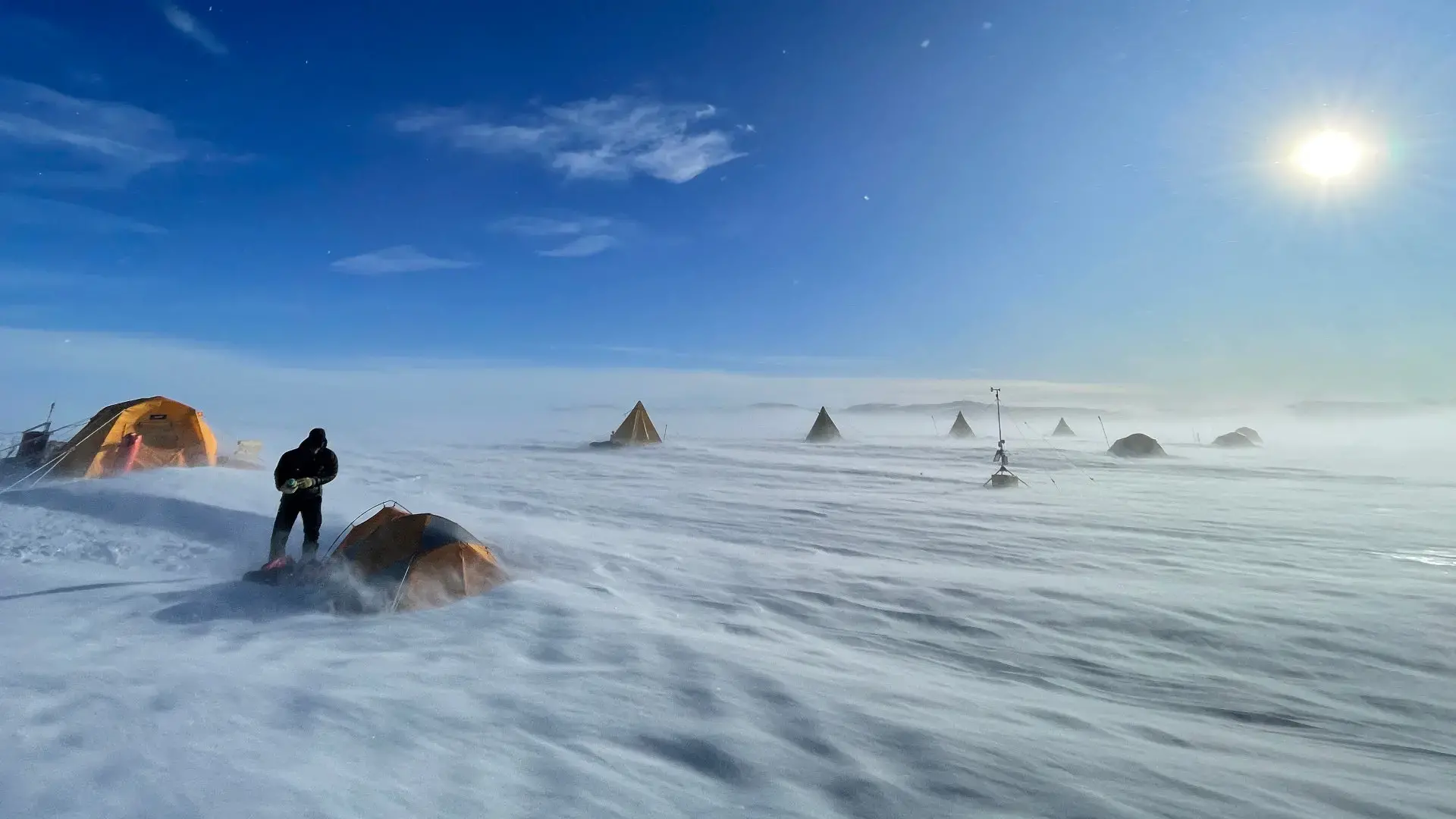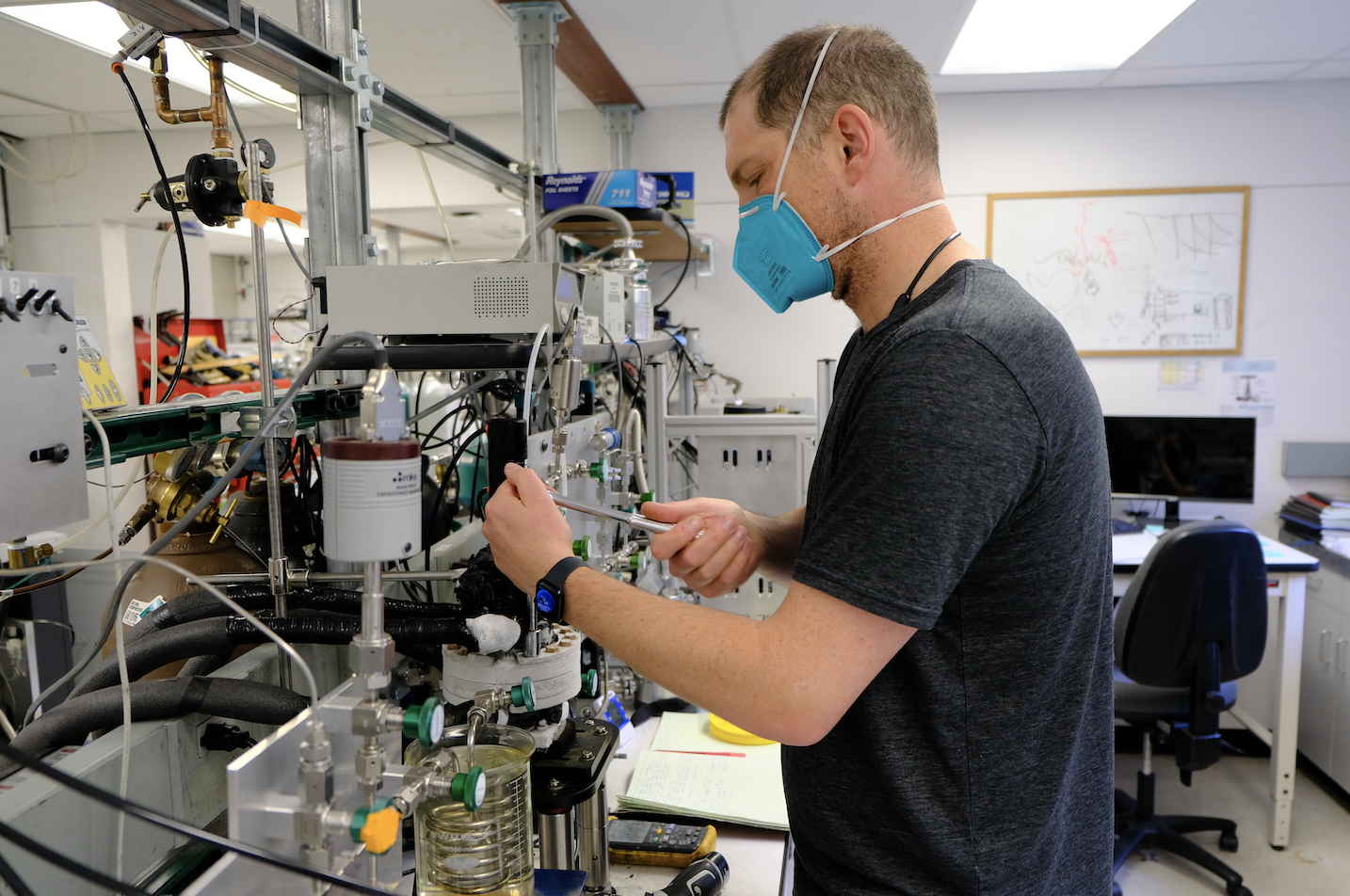
Ancient Ice Reveals Age-Old Problems
Fascinating scientific research seeks to retrieve the oldest ice on the planet and examine a time when Earth’s temperatures were as high as they are expected to be 50 years from now. This effort is supported by a National Science Foundation grant, which awarded $25 million to a group of top U.S. paleoclimatologists to establish the Center for Oldest Ice Exploration (COLDEX). Christian Elliott, a 2022 Climate Science Reporting Fellow from Northwestern University Medill School of Journalism, used his reporting skills to delve into this community of paleoclimatologists for his project, COLDEX: The Search for Earth’s Oldest Ice.
While Elliott’s reporting focuses on the establishment of the Center for Oldest Ice Exploration and the polar scientists working to extend the planet’s ice core record, he was equally intrigued by the stated dual mission of COLDEX to also reckon with some of its field’s entrenched social problems.
In August 2022, a bombshell National Science Foundation report revealed a pervasive pattern of instances of sexual harassment at scientific research facilities. Through surveys and interviews, the NSF concluded “that sexual harassment, stalking, and sexual assault are ongoing, continuing problems” within the U.S. Antarctic Program.
Elliott’s reporting notes almost three-quarters of women surveyed agreed that harassment was a problem, describing it as a “fact of life” on the continent. Ninety-five percent of women interviewed in focus groups knew someone who had experienced assault or harassment within the Antarctic program.
His reporting for Undark chronicles the excitement and fear faced by a new generation of female scientists who are ready to embark on research at the bottom of the world. His reporting details the many ways women working in this environment have faced harassment and isolation, and how the culture is now trying to address a legacy of sexual harassment.
Elliott’s reporting on the first year of COLDEX reveals the immense dual challenge of unlocking our planet’s climate and environmental history while also making polar science more inclusive and diverse. The challenges are great, but the potential benefits of both endeavors are a healthier, more secure planet.
Elliott and other Pulitzer Center Climate Science Reporting Fellows have spent the past year reporting on climate issues of global importance. Read more stories from up-and-coming journalists here.
Best,

Impact
After the publication of the project Investigating Land Grants to Universities, by a team that included grantee Tristan Ahtone, income generated by lands that established Colorado State University as a land-grant college will now be redirected to support members of Native American and Indigenous tribes. The Board of Governors of the Colorado State University System amended its Real Estate Investment Funds policy in October, at the recommendation of CSU’s Native American Advisory Council.
The Advisory Council developed the proposal by studying how other land-grant institutions handled the funds received through Morrill Act parcels. The Morrill Land Grant College Act of 1862 set aside federal lands to create colleges to “benefit the agricultural and mechanical arts.” Lindsey Schneider, co-chair of CSU’s Native American Advisory Council, stated: “We became aware that CSU still owns most of the land that was granted through that process and continues to make money on these parcels through leases managed by the State Land Board.”
The decision to redirect income to Native American and Indigenous tribes allows CSU to honor its existing commitments to Native American and Indigenous communities.
This message first appeared in the February 17, 2023, edition of the Pulitzer Center's weekly newsletter. Subscribe today.
Click here to read the full newsletter.










